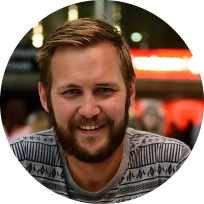Skills
About Stefan
Independent actuary, data scientist and machine learning practitioner with 9 years’ experience in healthcare, ranging from actuarial modelling to advanced analytics and machine learning. I’ve got extensive experience in the South African medical scheme environment and have worked on projects located in the USA, UK, Mexico and various other African countries. I’m the co-founder of Mast Analytics, a healthcare-focused data science and analytics start-up. The mission of our company is to use data science, machine learning and analytics to improve public health. We define public health broadly to include social determinants of health such as education and environmental health. Before qualifying as an actuary, I completed a http://www.******.***. (Honours) degree in mathematical statistics which included subjects such as physics, applied mathematics and computer science. This background makes me relatively unique among South African actuaries and allows me to view projects through a different lens and have equipped me with a diverse set of tools to solve problems with. I am currently completing my http://www.******.***. in Computer Science, focussing on machine learning and natural language processing. Previously, I spent over 7 years at Medscheme, a large third-party administrator and managed care organization in South Africa. My last position at Medscheme was Advanced Specialist: Hospital Analytics, reporting to the Chief Actuary. I was responsible for leading the development of Medscheme’s suite of hospital efficiency models which are used to profile providers and negotiate prices and reimbursement models with hospitals. I was integral in developing predictive models for identifying high and emerging risk patients, predicting future utilization and models for early identification of individuals at risk of specific high-cost events such as invasive back surgery. Along with two Medscheme colleagues, I was awarded the 2014 Starfield Award by the Johns Hopkins Bloomberg School of Public Health’s ACG System® team for our work in identifying emerging risk individuals through machine learning using administrative health data, designing an intervention plan for the identified individuals and measuring clinical and financial outcomes of the program.
